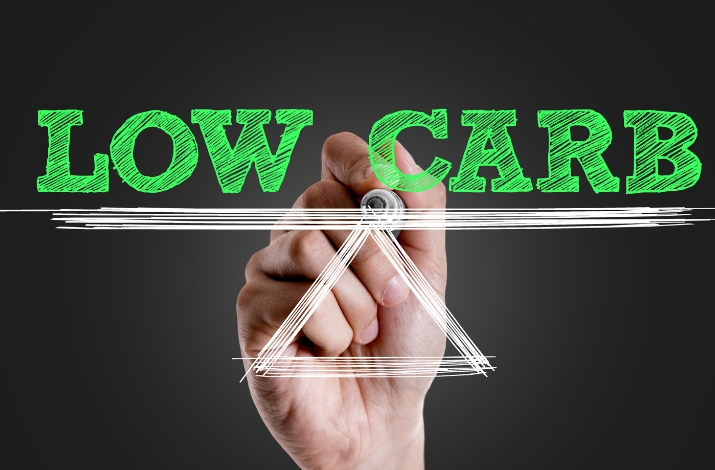What Science Really Says About Low-Carb Diets

Low-carbohydrate (low-carb) and ketogenic (keto) diets are popular for weight loss and health improvement, yet they’re surrounded by myths and misconceptions. With insights from published scientific studies, we’ll debunks some of the top myths about low-carb diets.
- Myth: Low-Carb Diets Always Increase Cholesterol Levels
Reality: While low-carb diets can raise LDL (low-density lipoprotein) cholesterol levels in some cases, they often improve other key markers of cardiovascular health. Research shows that these diets generally increase HDL (high-density lipoprotein) cholesterol, lower triglycerides, and may improve the overall cholesterol-to-HDL ratio.
- A systematic review and meta-analysis revealed that low-carb diets tend to increase HDL and reduce triglycerides, both of which are associated with reduced cardiovascular risk, though LDL levels may rise slightly1.
- In one randomized trial, individuals on a very-low-carb diet saw an increase in HDL levels and a reduction in triglycerides compared to those on a low-fat diet2.
- Myth: Low-Carb Diets Are Unsustainable Long-Term
Reality: Adherence to low-carb diets varies, but many find them sustainable with proper support and meal planning. These diets often curb appetite, which can lead to better adherence for those looking to lose weight and maintain it.
- A study over two years comparing low-carb and low-fat diets found that participants in both groups achieved similar weight loss, and adherence rates were comparable with lifestyle modifications3.
- Additionally, research on long-term low-carb diets has shown they can be sustainable, especially for those who appreciate the flexibility in food choices5.
- Myth: Keto and Low-Carb Diets are Unsafe for Heart Health
Reality: Low-carb diets appear to have a mainly positive effect on heart health markers. They tend to improve several aspects of cardiovascular risk, but individual responses can vary.
- Research suggests that low-carb diets can lead to improved HDL and triglyceride levels, important markers for cardiovascular health4.
- Some studies, particularly among those with specific genetic profiles or young, healthy individuals, indicate potential rises in LDL cholesterol6.
- Myth: Low-Carb Diets Are Harmful to Kidney Function
Reality: Concerns about kidney strain due to higher protein intake on low-carb diets are common, but evidence does not support increased kidney damage risk for most healthy individuals.
- Studies show that low-carb, high-protein diets do not cause kidney damage in healthy individuals, although those with pre-existing kidney conditions should be cautious and consult a healthcare provider before starting such a diet5.
- Myth: Low-Carb Diets Lead to Bone Density Loss
Reality: Some believe that low-carb diets could reduce bone density due to potential mineral losses, but studies have not consistently supported this.
- Over a two-year period, research showed no significant difference in bone mineral density between those following low-carb and low-fat diets, suggesting that low-carb diets are not inherently harmful to bone health3.
- Myth: Low-Carb Diets Are Not Effective for Weight Loss
Reality: Many studies support the efficacy of low-carb diets for weight loss, particularly in the short to medium term, with significant improvements in body composition.
- Multiple randomized trials and meta-analyses have shown that low-carb diets can lead to greater weight loss than low-fat diets, especially over six months, by improving satiety and reducing calorie intake4,7.
- Myth: Low-Carb Diets Lack Nutritional Balance
Reality: Low-carb diets can provide balanced nutrition if planned well, incorporating vegetables, healthy fats, and quality protein sources.
- While traditional low-carb diets limit grains and fruits, they can be rich in vegetables, nuts, seeds, and other nutrient-dense foods that provide essential vitamins and minerals8.
- Myth: Low-Carb Diets Don’t Support Exercise Performance
Reality: Athletes might experience performance adaptation when transitioning to a low-carb diet, but they can maintain or even improve endurance in the long run with proper adjustment.
- Studies on low-carb and keto adaptations in endurance athletes show that while high-intensity performance may initially decline, endurance can remain steady or improve as the body adapts1.
- Myth: Low-Carb Diets Are Incompatible with Diabetes Management
Reality: Low-carb diets can be particularly beneficial for managing type 2 diabetes, improving blood sugar control and reducing the need for medication.
- Research indicates that low-carb diets help reduce insulin levels, improve glucose control, and may reduce the need for medication in individuals with type 2 diabetes8.
- Myth: Low-Carb Diets Cause Nutritional Deficiencies
Reality: Although low-carb diets restrict certain food groups, nutrient deficiencies are not inevitable and can be avoided with thoughtful food choices.
- Studies show that low-carb diets can be nutritionally adequate when including a variety of low-carb vegetables, healthy fats, and high-quality protein sources9.
Conclusion
Low-carb diets, including keto, are surrounded by various myths, yet scientific evidence provides a nuanced view. While they may not be suitable for everyone, many of the concerns, such as cholesterol effects and sustainability, are not universally valid. Low-carb diets offer potential health benefits, especially for weight management, cardiovascular risk factors, and diabetes control, and can be sustainable when tailored to individual needs.
References
- Gjuladin-Hellon, T., Davies, I., Penson, P. E., & Amiri Baghbadorani, R. (2018). Effects of carbohydrate-restricted diets on lipid markers. Nutrition Reviews.
- Bazzano, L., Hu, T., Reynolds, K., Yao, L., et al. (2014). Effects of low-carbohydrate diets. Annals of Internal Medicine.
- Foster, G., Wyatt, H., Hill, J., et al. (2010). Weight and Metabolic Outcomes After 2 Years on Low-Carb Diets. Annals of Internal Medicine.
- Chawla, S., Tessarolo Silva, F., et al. (2020). Comparison of low-carb and low-fat diets. Nutrients.
- Westman, E., Yancy, W., Edman, J., et al. (2002). Effects of a 6-month low-carb diet program. The American Journal of Medicine.
- Retterstøl, K., Svendsen, M., Narverud, I., & Holven, K. (2018). LDL cholesterol increases with LCHF diet. Atherosclerosis.
- Hu, T., Mills, K., Yao, L., Demanelis, K., Eloustaz, M., Yancy, W., Kelly, T., He, J., & Bazzano, L. (2012). Effects of low-carbohydrate diets versus low-fat diets on metabolic risk factors: a meta-analysis of randomized controlled clinical trials.. American journal of epidemiology, 176 Suppl 7, S44-54
- Kirkpatrick, C., Bolick, J. P., et al. (2019). Review of low-carb diet effects. Journal of Clinical Lipidology.
- Ruth, M., Port, A., Shah, M., et al. (2013). HFLC diet effects on inflammation. Metabolism.
This article is for informational and educational purposes only. It is not, nor is it intended to be substitute for professional medical advice, diagnosis, or treatment and should never be relied upon for specific medical advice.



















